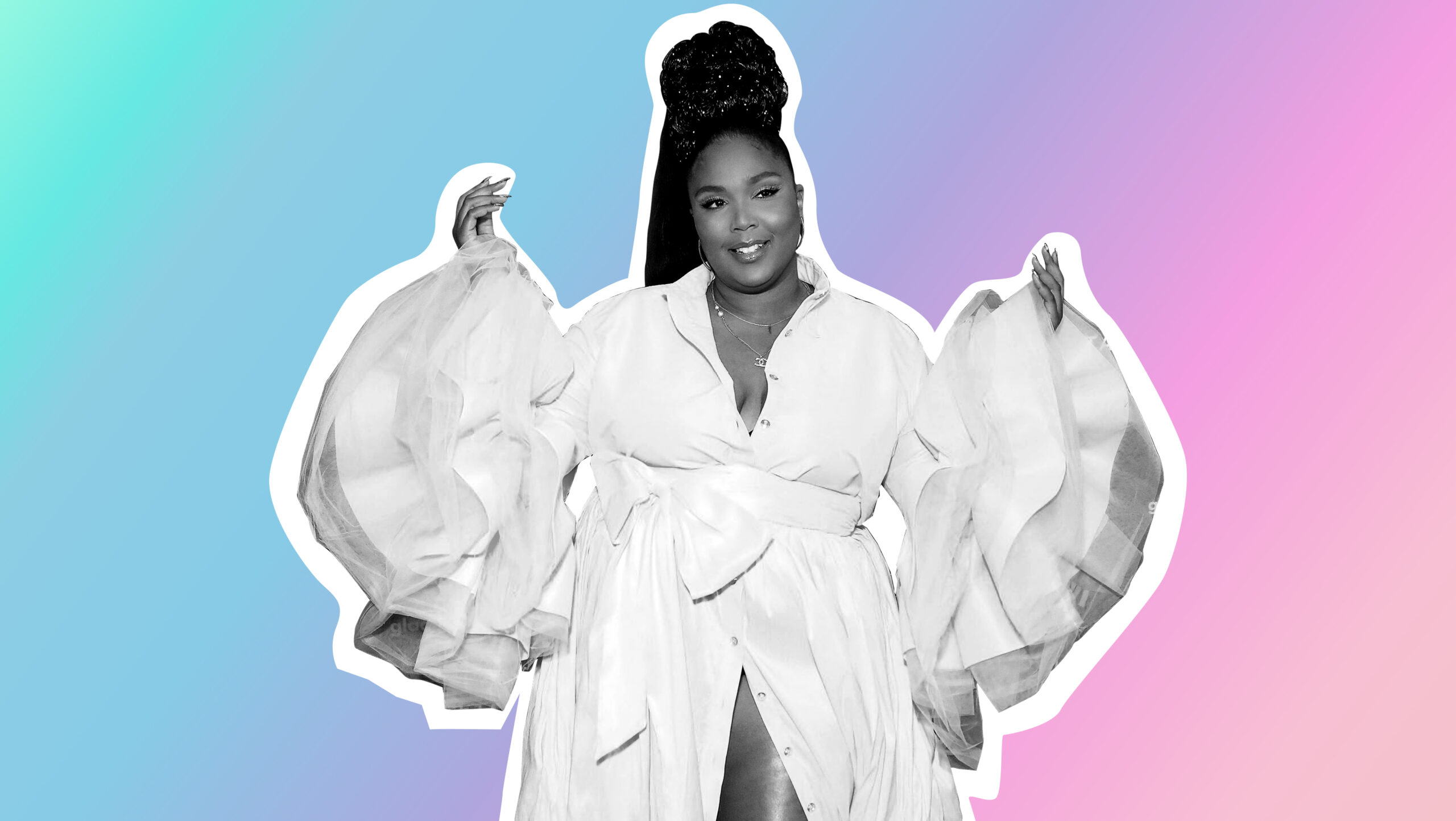Lizzo is finally about to be a star. Well, at least, she’s ready for the rest of the world to recognize she’s a star after years of creating all kinds of killer R&B, rap and pop songs.
Indie rapper Melissa Viviane Jefferson (Lizzo), of Houston, Texas, is one of the most exciting voices in music. While the energy around her is that of a breakout star, thanks to her flute videos, several key media appearances and a few viral tweets, Lizzo has actually been working steadily throughout the 2010s. She’s released Lizzobangers and Big Grrrl Small World, as well as EPs Grrrl Prty X Bionik and Coconut Oil. The latter includes a couple of her more popular songs, including club anthem “Phone.”
She’s also part of the RuPaul’s Drag Race universe. She served as a guest judge on Season 10, recorded chorus vocals for All Stars 4 group songs “Don’t Funk It Up” and “Everybody Say Love,” and even collaborated with Drag Race queens to film a special second video for her new song (and, it must be said, utter bop) “Juice.”
On Friday, she released her new album Cuz I Love You. For many, it will be the first full Lizzo album they listen to — much like scores of new fans who found Kacey Musgraves with Golden Hour last year, despite her releasing albums since 2013.
Like Musgraves, Lizzo enjoys a large LGBTQ2 fanbase, one that celebrates her music as much as they do her delightful Twitter persona. But now that we have a new, full-length effort from her to digest, it’s time to dig in and find out: how queer is Lizzo’s Cuz I Love You?
But first, is Lizzo queer?
In an interview with Teen Vogue, Lizzo expressed her frustrations with the binaries that drive conversations about gender and sexuality.
“When it comes to sexuality or gender, I personally don’t ascribe to just one thing. I cannot sit here right now and tell you I’m just one thing,” she told the magazine. “That’s why the colours for LGBTQ+ are a rainbow! Because there’s a spectrum and right now we try to keep it black and white. That’s just not working for me.”
Lizzo is known for sex-positivity and body-positivity in both her art, and her public persona. In an interview with Paper in December, Lizzo said the reason why she’s so upfront about her body was the lack of representation for people who look like her in the media when she was growing up.
“When I was younger I didn’t see myself in the media. I didn’t see myself in fashion. I didn’t like how I looked because of what I saw on television,” she said. “It didn’t reflect me so to become this super body positive I think my journey was so much a part of that. I had to really learn. I had to hit rock bottom with loving myself and really learn how to fuck with me.”
Lizzo is not just fighting for people who look and sound like her, but for everyone who can relate to her on any level. But does that have anything to do with queerness? I’d argue there’s a sense of sharing the same goals. She’s been down in the trenches working her way up, and she’s been boosted by queer people, people of colour, fat people, and so on. She’s a queen among the marginalized who radiates confidence but never makes others feel inferior. She’s an ally and a music star for a new kind of woke world. (And for what it’s worth: Lizzo has called herself a Lizzbian on Twitter, of course.)
i am
straight
bisexual
gay
lizzbian pic.twitter.com/hRCHv64UtG
— |L I Z Z O| (@lizzo) June 24, 2018
Advertisement
What can I expect from Cuz I Love You?
Cuz I Love You is similar to Ariana Grande’s My Everything, or Beyoncé’s B-Day, in that it’s a collection of excellent singles. The tone shifts from pop to rap to slow-jam R&B on a dime. And that kind of experimentation benefits Lizzo; it’s like watching a great artist improvise their setlist and follow what interests them.
One song that I think will resonate with the LGBTQ2 community is “Soulmate.” In her breakdown of the song for Apple Music, Lizzo explained its origin as her own battle with feeling alone. “I have a relationship with loneliness that is not very healthy, so I’ve been going to therapy to work on it. And I don’t mean loneliness in the ‘Oh, I don’t got a man’ type of loneliness, I mean it more on the depressive side, like an actual manic emotion that I struggle with,” she explained. “One day, I was like, ‘I need a song to remind me that I’m not lonely and to describe the type of person I want to be.’”
A struggle to learn to love yourself in the face of crippling doubt and isolation? If that isn’t a reflection of the experience so many queer people go through, to escape unfriendly home environments and get over their own shame, then I don’t know what is.
“’Cause I’m my own soulmate,” Lizzo sings on the track. “I know how to love me.”
So, how queer is Lizzo’s Cuz I Love You?
While there aren’t many explicitly queer themes on the album, a lot of it fits with the previously stated idea that Lizzo is one of us. She may not know where she fits on the spectrum, but we know she’ll be at the clubs with us, lifting us up, and celebrating us. That kind of community love is, to me, queer as hell.


 Why you can trust Xtra
Why you can trust Xtra


